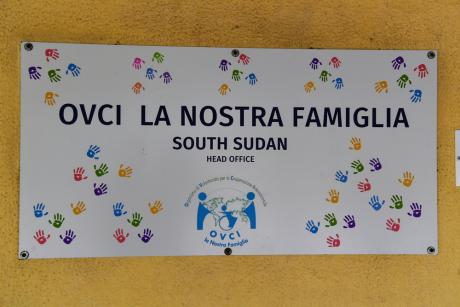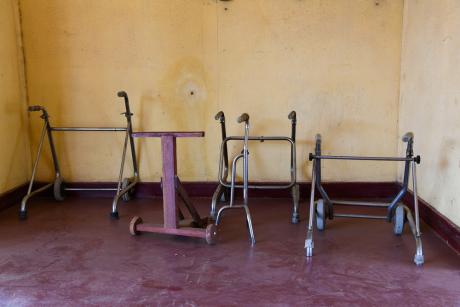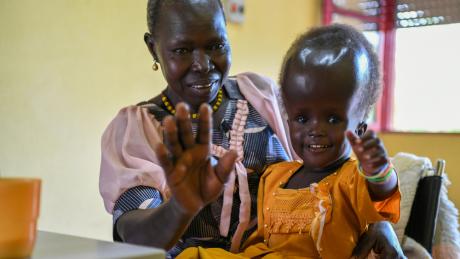
Disabled children with neurological conditions in Juba currently have access to life-saving surgery thanks to a new project being trialled by MAF, CURE Children’s Hospital of Uganda and Italian NGO OVCI Nostra Famiglia.
The family atmosphere is in evidence in the covered walkways and verandas of the Rehabilitation Center. Mothers feed milk to their children sitting on mats on the floor. La ‘Nostra Famiglia’ and Usratuna literally translate as ‘Our Family’ in Italian and Juba Arabic.
Technical Co-ordinator and Project Manager Paola Fappani, co-ordinates the rehabilitation area where parents bring children with congenital conditions and disabilities for initial diagnosis, treatment and support. Paola stops what she is doing, looking for a patient referral, to explain more about their services and the bottomless pit of need.
‘Our project in Juba is the first project for OVCI which has been working in Juba since 1984. Our mission is to help disabled children and we are specialised in that.’
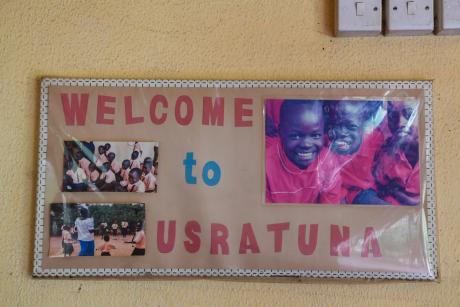
Depending on the condition, the team have two options available to them. Surgery in one of Juba’s expensive private hospitals or referring the child to specialist services located outside South Sudan.
Children with neurological conditions like hydrocephalus and spina bifida, have to be referred, as Paola explains.
‘The surgeries cannot be done here in South Sudan due to a lack of neurologists, but also the hygiene conditions are not good enough. The operating theatres, the whole infrastructure is not conducive to having surgery here.’

‘In the rehabilitation area we have different departments, the physiotherapy department, the occupational therapy department, Speech therapy and the workshop in which we create the devices for children,’ Paola says.
When a family comes seeking treatment for their child, they are assessed by Usratuna’s capable staff. For many, it is the beginning of a lifelong journey to ensure their children get the support they need.
Most are babies with congenital conditions that need specialist services which are sadly lacking in South Sudan.
‘We are the only centre of our kind in South Sudan. We see a lot of needs and lack many services. The health sector is biggest area of need,’ Paola explains.
‘There are no specialist doctors here. There are a lot of clinical officers, but they are not well trained. We need more specialists, more neurologists, more orthopaedic surgeons, and more physiotherapists. Physiotherapy is not even recognised as a profession here in South Sudan. This is one of our biggest challenges,’ she says.
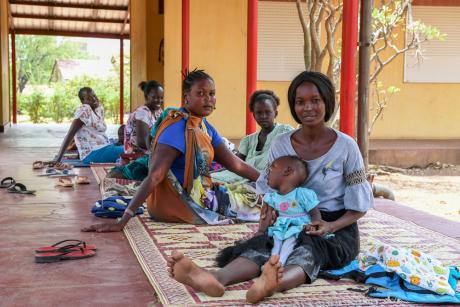
Usratuna’s first choice for their patients with neurological conditions is the CURE Children’s Hospital of Uganda, one of Africa’s leading paediatric hospitals for brain surgery and the treatment of neurological conditions. With an 18-bed Intensive Care Unit and 50 ward beds, three operating rooms, and an outpatient clinic, CURE is equipped with the experience and expertise to treat the patients that come seeking help.
‘The main neurological condition is hydrocephalus. These are the most urgent cases because patients suffering with hydrocephalus will not survive without treatment. Without surgery they can lose their lives, so we start by referring them first. The kind of surgery received at CURE Children Hospital of Uganda is life-saving surgery,’ Paola says.
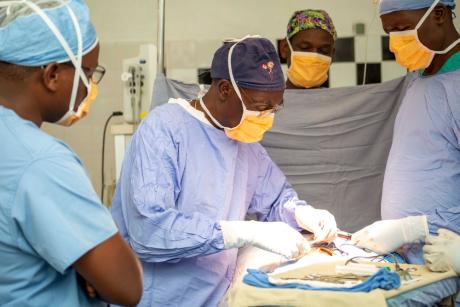
‘The number of children we can send depends on our funds. Last year, we had a small budget so only a few were referred. From November up until now we sent around 30 children. One group with a MAF plane. The rest of the group were sent by taxi or bus.’
OVCI stretch the funding to try and help as many children as possible. Because of this Paola is excited at the prospect of helping more children though the partnership between OVCI Nostra Famiglia, CURE and MAF. ‘Without the help and collaboration with MAF, and especially with CURE in Uganda, it would not be possible to help these children. That is why this project is so important,’ Paola explains.
Mbale’s location, in eastern Uganda is an additional challenge facing patients coming from South Sudan. ‘The journey by road is a big effort for the disabled children and their family member to reach Uganda. The journey will take around 12 hours,’ Paola says.
For some families, it is the first time they have travelled outside of South Sudan. The children are medically fragile, some are just a few days old, with parents are still coming to terms with a life-changing diagnosis, the prospect of major surgery, and an uncertain future caring for a disabled child.
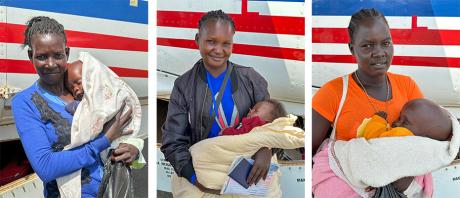
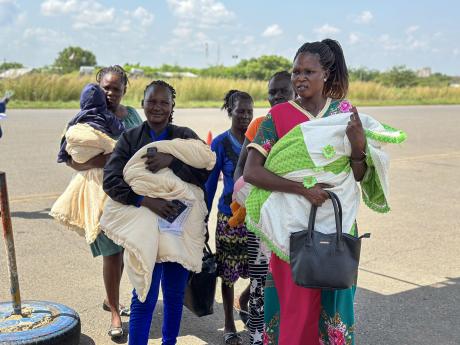
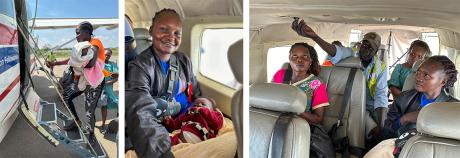
They journey includes a border crossing where the families are sometimes harassed as Paola explains. ‘The police at the border are not so nice and sometimes they disturb them and don’t allow them to cross the border. They ask them to pay money, some extra bill. Also, they can be attacked by a group of people on the road. Road security is a big problem in South Sudan even on the main road to Uganda,’ she says.
‘Of course, it is better to have an option to go by plane,’ Paola says enthusiastically, pointing out the most important benefits. ‘The option to reach Uganda by plane is a great help because we don’t have security issues. Also, the type of journey is easier for the families. In two-three hours they can reach Uganda by plane.’
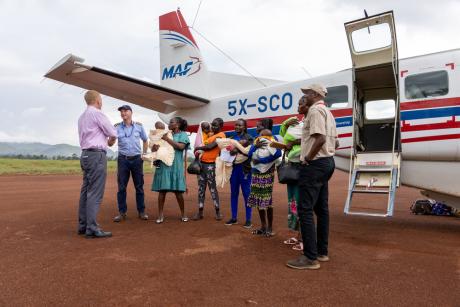
The aim is to establish a regular service where children can be brought for surgery and well as follow up appointments and reviews. Requests for help are increasing and coming from further afield, as Paola explains.
‘Now that other organisations are discovering that we have funding, we are receiving more referrals, even from outside Juba. They are sending patients from there from Yirol and Yei. In the next group flying to Uganda there will be a patient from Yei.’
‘Some of the children are in a hard-to-reach areas where the roads are not ok. There are only a few facilities and services that can support them and these are concentrated in the city of Juba. Simply, we want to help more children. With the help of MAF, we can bring them to Uganda for free. The money we save of transport means we can help more children. We pay only the travel documents and part of the surgery costs. For us, it is a great help!’ Paola says
